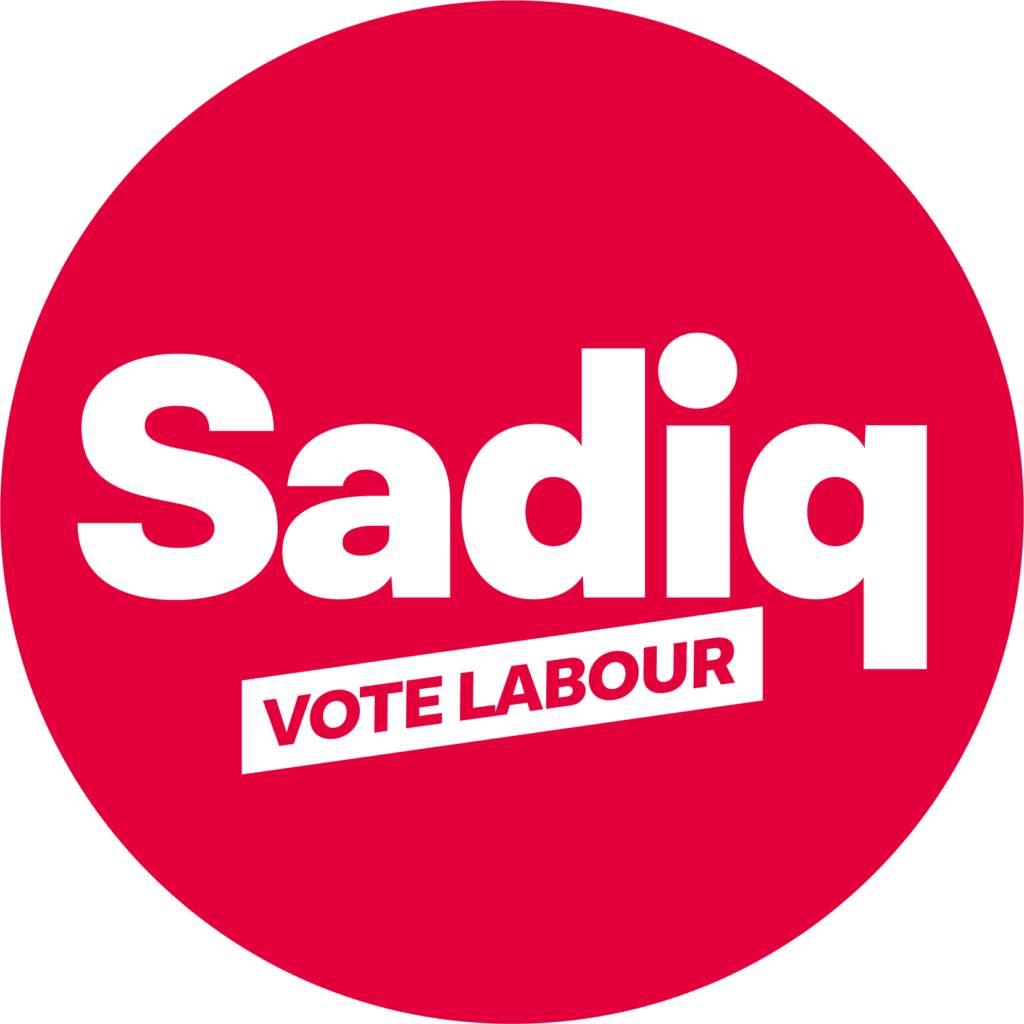Making London more prosperous
In 2016, I promised to be the most pro-business Mayor yet, working in partnership with businesses to boost skills provision, infrastructure and growth. I’m proud to have delivered on that promise.
We’ve worked with businesses to help create more than 300,000 jobs from City Hall initiatives since 2016. More than one million Londoners have taken a course provided by my Skills for Londoners programme. We’ve delivered the Elizabeth line, which has become the busiest train line in the country, as well as the Northern line extension to Battersea Power Station and the Barking Riverside extension. We haven’t stopped banging the drum for London, both at home and abroad – bringing in new jobs, investment, talent and tourism. And London’s economy has continued to grow, outperforming every other region in the country.
Key Pledges
- Work to make universal free school meals permanent for all state primary school children
- Freeze TfL fares until at least 2025 and continue to freeze fares for as long as economic conditions allow
- Deliver a new London Growth Plan, with a target of creating more than 150,000 good jobs by 2028 and increasing living standards for Londoners
- Give free skills training to any Londoner over 19 who is unemployed or on a low income
- Work with a Labour government to explore greater devolution of rail and end the misery of non-TfL rail lines letting Londoners down
- Expand bus services in outer London, including a second Superloop
But many Londoners and businesses are still struggling, particularly with the Tory government’s cost-ofliving and cost-of-doing-business crises. My ambition is to continue creating an economy that works for all Londoners, where businesses are given the support they need, and where neither opportunity nor achievement are limited by gender, race, sexual orientation, disability, religion, class or background. I’ve always believed that it’s a myth that the goals of growing the economy and supporting businesses, and reducing inequality and tackling the climate crisis, are in conflict. The opposite is true – they go hand in hand. That’s why my priority will be to continue building a greener, fairer, modern economy that’s fit for the 21st century, where no one is left behind by the cost-of-living crisis.
The Tory Party’s record of economic failure is as shocking as it is damaging for Londoners and people across the country. This will be the first Parliament since records began to see living standards fall. For 14 years now, the economy and the wages of ordinary Londoners have hardly grown. As a result, the average Londoner is thousands of pounds worse off because of Tory failure. During my time as Mayor, London has done better on economic growth than other parts of the country. But I know that with the right support we could do so much more. That’s why I am determined to work with Keir Starmer, Rachel Reeves and a Labour government to get the UK economy growing again, providing good jobs, investment and improved living standards for ordinary people.
Helping Londoners through the cost-of-living crisis
The Tory cost-of-living crisis is hitting Londoners hard, with many struggling to make ends meet. As Mayor, I’ve been doing all I can to step in to support people through this difficult time.
This includes freezing TfL fares again this year. This is the fifth time I’ve frozen fares as Mayor, saving Londoners hundreds of pounds, and making fares 14 percent lower than if they had risen in line with National Rail fares, and 21 percent lower than if they’d risen in line with RPI since 2016. Under my Tory predecessor, TfL fares rose 42 percent between 2008 and 2016.
I have a proven track record of keeping transport fares low. If I’m re-elected, I promise to continue to do so, at the same time as maintaining investment in our public transport network, by freezing TfL fares until at least 2025. I’ll continue to freeze fares as long as economic conditions allow.
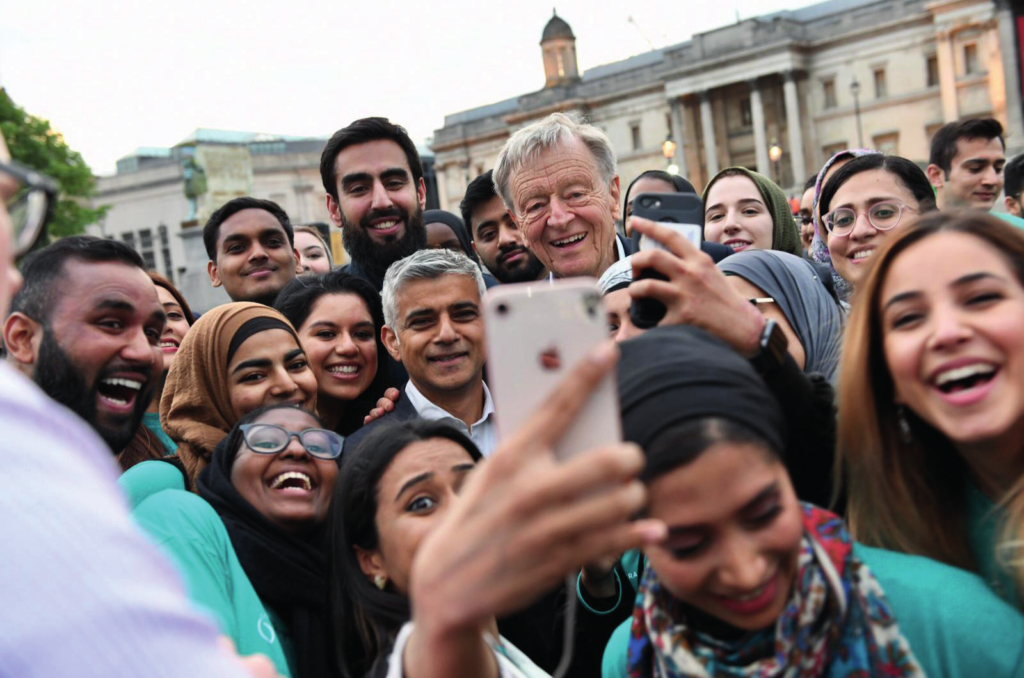
I am so proud to have introduced free school meals for all children in state primary schools in London. This is saving parents and carers up to £1,000 per child over two years. I relied on free school meals, so I know the difference they can make – not only in improving children’s health and ability to learn, but in easing the burden on families. If elected, I will work with London’s boroughs and other partners to make the provision of universal free school meals permanent, ensuring no child in our state primary schools will go hungry. I also commit to continuing my holiday hunger scheme to provide more than 10 million meals to young Londoners during the school holidays.
As Mayor, I’ve pledged to make London a living wage city to ensure that workers are paid a fair wage. The London Living Wage has risen by 40 percent since I took office, benefiting hundreds of thousands of Londoners, and there are now more than six times as many accredited Living Wage employers compared to when I first became Mayor. I’ll continue to support Londoners struggling with the Tory cost-ofliving crisis and do all I can to boost wages in the capital.
I’ll continue to work with partners like Citizens Advice and the London Legal Support Trust to provide essential advice services. This work has already put more than £25 million back into the pockets of low-income Londoners. I’ll also pilot support for ‘multibanks’ where Londoners in need can have access to a range of essentials as well as advice and wider support to help them get back on their feet.
Growing our economy
London’s economy has remained resilient throughout some extremely difficult times, including the pandemic and the impact of a Tory botched Brexit. We are still a global leader in sectors like finance, tech and the creative industries. We remain a dynamic city – attracting business, investment and tourism from around the world. We have worked with businesses to help create more than 330,000 new jobs through City Hall programmes. We’ve become a global hub for green finance. And our economy is now growing faster than any other region of the country. Last year alone, nearly £40bn net flowed from London into the public purse, and we are the only region that has contributed more to the Treasury after the pandemic than before.
I will build on our city’s economic recovery and set out an exciting new London Growth Plan, developed in close collaboration with councils, businesses and trade unions.
This new growth plan will set out how we can boost jobs and growth in the well-established sectors of our economy, including finance and business services; retail, hospitality, leisure and tourism; manufacturing; logistics; built environment and construction. I will also focus on and champion some of the fastest growing sectors, such as health and life sciences; digital including fintech, retail tech, cyber and AI; creative industries including film, fashion, TV, music and games; climate tech and the energy sector.
As well as boosting jobs, we need to ensure this work leads to career progression and a route to higher pay and living standards. So I will set a target of creating more than 150,000 good jobs by 2028. I’ll ensure that young Londoners, especially those from lower income households, are given the opportunities to secure these high-quality, well-paid jobs that will enable them to get on.
We have worked with businesses to help create more than 330,000 new jobs through City Hall programmes. We’ve become a global hub for green finance. And our economy is now growing faster than any other region of the country.
This will include asking the Mayor’s Fund for London to work with private sector partners to provide routes into key growth sectors for young Londoners from underrepresented backgrounds.
Since becoming Mayor, I have introduced a major skills offer for the capital, with free training now available to any Londoner aged 19 and over who is unemployed, on a low income, or has limited formal education. We have helped more than a million learners access courses through our adult skills programmes, equipping Londoners with the knowledge and qualifications they need to get into good work.
I’ll continue to use this successful skills programme to ensure Londoners have access to the learning they need to get ahead in our economy. I will also continue to support Londoners to get online, with free basic digital skills courses, refurbished laptops and smart devices donated by businesses and the public sector.
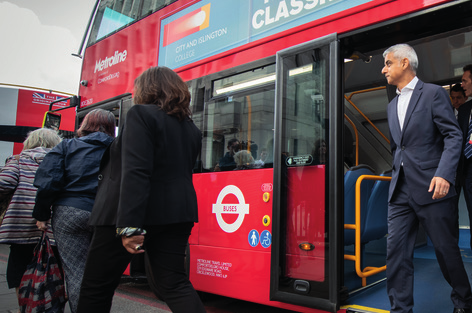
To help boost economic growth across our city, I will support individual boroughs to build on their strengths – from the new global culture and education powerhouse that is East Bank in Stratford, to the world-leading TV and film production cluster in West London, and the internationally influential cutting edge cancer research centre in Sutton. This also means working with councils and businesses to deliver a new vision and plan for the centre of London, ensuring that we can continue to compete with the central activity zones of other global cities like Paris and New York. London has roared back as a tourist destination since the pandemic and I’ll continue to work with partners to improve our tourism offer.
Improving our digital connectivity in London will help us to increase innovation, productivity and growth across our economy. That’s why I will continue to improve mobile connectivity for Londoners. We already have plans in place for mobile coverage to reach 80 per cent of the Tube network by the end of 2024, and if re-elected I’ll complete this work, bringing 4G and 5G service to all of the London Underground, London Overground and the Elizabeth line by the end of 2025. I’ll also make more of London’s busy places well-connected with better mobile signal, using street furniture like lampposts to host infrastructure.
In 2017 I established the Connected London programme to co-ordinate full fibre investment across the city, working closely with boroughs and telecoms companies. Back then only 4% of homes and businesses had direct access to full fibre. This now stands at 66%, with 89% able to receive gigabit speeds – the highest in England. We will continue this work, increasing consumer choice and steering investment towards growth areas of outer London to support new jobs. I’ll also continue to improve the Data for London platform, work with partners to develop new data services for city priorities, and ensure that the Artificial Intelligence revolution truly serves Londoners and their needs.
London’s one million small businesses are the backbone of our city’s economy, employing more than half of all Londoners. I will continue to champion London’s micro, small and mediumsized businesses with support, advice and help to grow and expand internationally.
London is home to more than 600 high streets. We learned during the pandemic how intimately connected we are to local high streets, and their importance to our communities. That’s why I want to do more to protect, restore and improve them. If I’m re-elected, I will launch a support fund and set out a new vision for the future of London’s high streets, building on the work we have already done. I’ll also explore planning changes that can help breathe new life into our high streets, helping to ensure they remain a central feature of our economic and civic life.
Keeping London moving
Transport is a cornerstone of my vision for a fairer, greener and more prosperous city. Transport doesn’t only shape our daily lives and determine how we get around London – it can create new opportunities for Londoners and enhance the character of our city.
As Mayor, I will continue to deliver the affordable, reliable and safe service Londoners deserve, and to unlock the power of transport to improve people’s lives.
The pandemic was the biggest challenge Transport for London (TfL) has ever faced, but we have successfully managed to navigate through this crisis, avoiding the big cuts to services seen elsewhere in the country. TfL is now financially stable in terms of its day-to-day costs and I know that with a Labour government that won’t use TfL funding as a political football, we can start a new chapter, investing in exciting transport services and infrastructure.
Since 2016, we have got the Superloop bus network, the Night Tube and the Elizabeth line all up and running, making it easier, faster and more sustainable for Londoners to move around our city. But I want to connect even more parts of our city, particularly in outer London. So I will unleash a public transport revolution in outer London, building on the success of the Superloop bus network by introducing a second superloop. More town-centre to town-centre connections in outer London is what Londoners need.
Our plan for outer London will also include addressing the poor service and standards faced by Londoners using non- TfL rail services in our city. We’ll work with a Labour government to take the necessary steps to give Londoners the services they deserve. This includes exploring greater devolution of rail services and what lines could be better run by TfL. I will push to deliver the next generation of major transport projects, including the Bakerloo Line Extension, West London Orbital and DLR to Thamesmead. These projects could unlock an additional 150,000 new homes and would be a huge economic boost for our city. I’ll also continue work to safeguard the Crossrail 2 route so that this much-needed project can be brought to fruition in the future.
While we wait to complete these major transport projects, I’ll explore the potential to run Superloop-style express bus services along some of these routes.
I’ll also drastically reduce disruption on our roads by working with TfL and councils to extend the lanerental scheme to borough roads. This will mean that utility companies and others will have to pay when they dig up borough roads, incentivising them to co-ordinate and finish roadworks much more quickly. All the revenue raised will be reinvested to fix potholes and reduce road congestion. This will be done in partnership with TfL, boroughs and my Infrastructure Coordination Service.
The vast majority of people driving vehicles in London are safe and considerate, but a dangerous minority means that Londoners are too often under threat from reckless driving. So I will continue to deliver my Vision Zero ambition – the elimination of all deaths and serious injuries from London’s streets by 2041. Increased funding for healthy streets will enable TfL and boroughs to improve safety at more junctions, including upgrading and improving crossings for people walking and wheeling around the city.
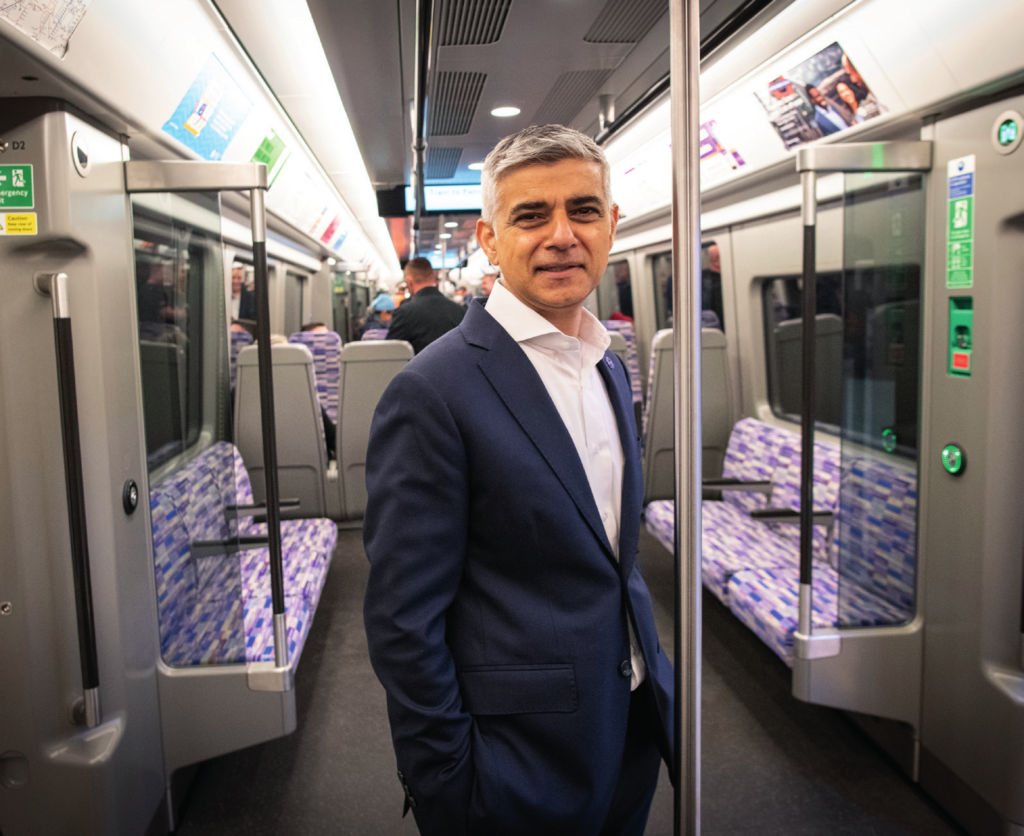
My other transport commitments include:
- Continuing to put new trains on our transport network. I commit to delivering a fleet of 54 new DLR trains by 2028, developing plans to replace the Bakerloo line fleet, and delivering the new Piccadilly line trains from 2025
- Launching a new plan to cut bus waiting times and exploring new approaches to increase bus ridership and improve the passenger experience, including adding WiFi and phone charging points. I’ll also work with a Labour government to explore the potential benefits and means of bringing bus operations into public ownership
- Modernising TfL’s approach to ticketing. This will include: allowing concession holders to use their phones as their travel pass, instead of having to carry an Oyster card; working with the government to roll out contactless payment in stations outside London; and working to include National Rail discounts when contactless payments are used
- Working with TfL to review our fares and ticketing system to ensure it continues to be world-leading and can meet the evolving needs of passengers. The way Londoners and visitors travel on public transport is changing, which means our approach to fares and ticketing must be more flexible and innovative
- I will continue pushing the government to provide the necessary funding to fully reopen Hammersmith Bridge, including to motor vehicles, working with the London Borough of Hammersmith and Fulham who own the bridge
- Expanding the step-free access programme to cover half of the Underground network by 2030
- Encouraging closer collaboration between TfL’s London River Services, the Port of London Authority, the Maritime and Coastguard Agency and the boroughs that border the Thames to ensure a more holistic and strategic approach is taken to river transport. I will examine whether changes to the way activity on the river is regulated would better support our plans and strategies, particularly the London Environment Strategy and the Mayor’s Transport Strategy
Backing London’s world-leading cultural and creative sector
London’s vibrant and diverse culture is what sets our city apart and gives us a competitive edge. We have seen our city enriched through migration, making London a mosaic of different cultures, foods, art and creativity. One in five jobs in London is in the creative economy. Culture is the reason that four out of five tourists visit London, and the creative economy generates more than £50 billion for the UK each year. Our cultural economy is a major asset, and must continue to be supported to thrive.
So I will boost London’s position at the centre of international culture and creativity by supporting our TV, film, games, fashion and design industries, and backing a new international centre for the creative industries. I’ll also expand the hugely successful Creative Enterprise Zones Programme, creating and supporting jobs, encouraging strong economic growth in the zones, and safeguarding hundreds of cultural workspaces.
While growing London’s culture and creative sector, I will ensure there is a strong focus on creating pathways into creative jobs for young Londoners from low-income and Black and minority ethnic backgrounds, to ensure our culture and creative output is shaped by all.
Our rich and diverse cultural heritage is among some of the best in the world. I will build on this and deliver a new world-class Museum of London, working with the City of London Corporation. I will also complete one of the most important cultural developments in Europe for a generation – East Bank. East Bank is the UK’s newest culture and educational quarter and is home to the Victoria & Albert Museum, Sadler’s Wells, UAL’s London College of Fashion, UCL East and the new BBC Music studios.
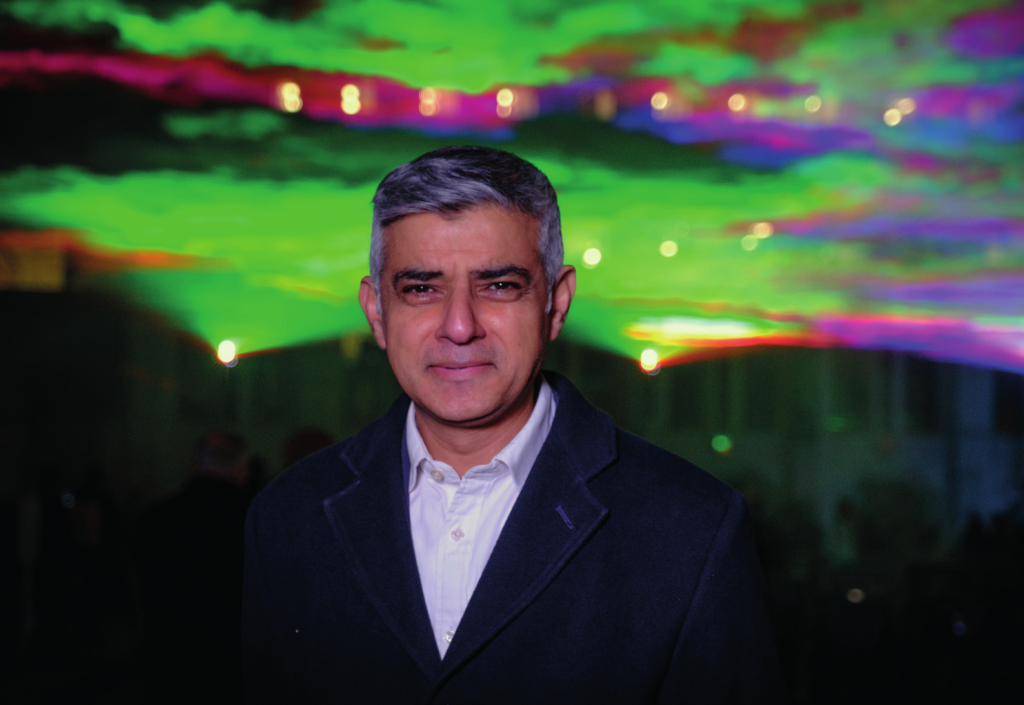
I know that London’s culture isn’t just about Zone 1 – it’s threaded through each borough that makes up our city. So I will continue to deliver the next rounds of the London Borough of Culture in Wandsworth in 2025 and Haringey in 2027, ensuring culture is brought closer to our communities.
From Soho to Tottenham, Camden to Peckham, New Cross to Hackney Wick, London’s nightlife is a diverse mosaic of bars, live music, comedy, theatre and film. Our world-class nightlife has faced many challenges over the last few years as a result of the pandemic and the impacts of both the Tory botched Brexit and their cost of living crisis. I’ve always been a passionate advocate for London’s nightlife and I will continue to protect the music venues, creative studios, pubs and clubs that make London such a dynamic creative capital. I’ll continue to work with London boroughs to develop night-time strategies to support our city to thrive at night, and I’ll go further by creating a new London Nightlife Fund, and convening a London Nightlife Taskforce that will examine and address the issues facing our city’s night-time hospitality and culture.
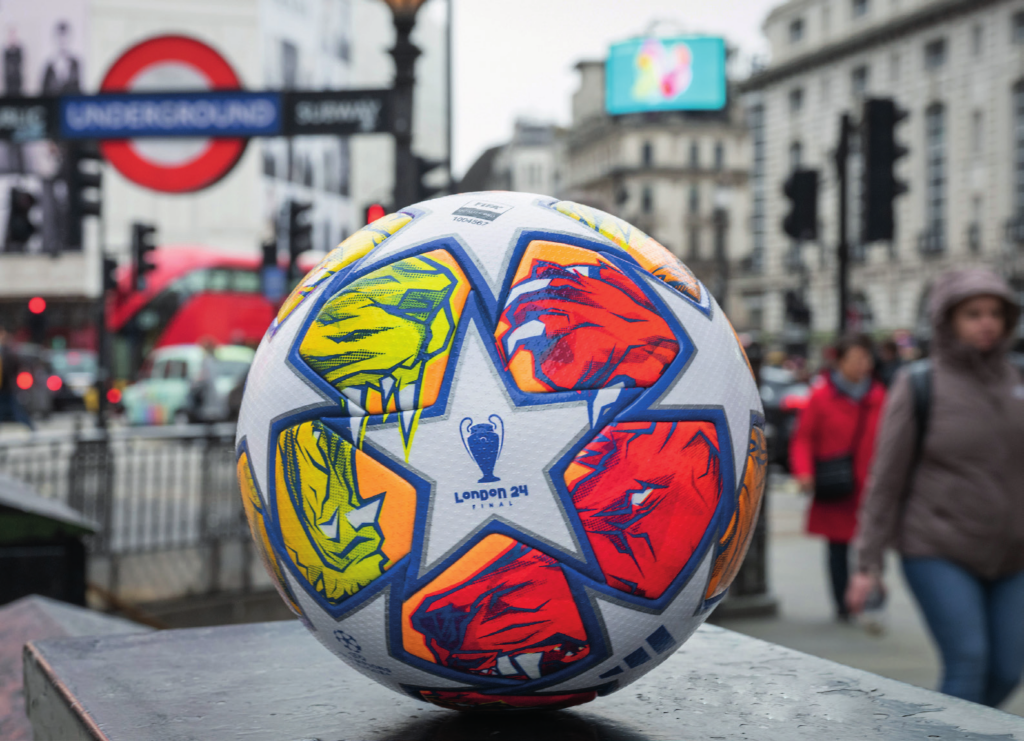
Undisputed sports capital of the world
London is a city that lives and breathes sport. From Wimbledon’s lawns to wild swimming at the West Reservoir, from the Copper Box in Stratford to the community basketball courts, from the Parliament Hill Fields Athletics Track to the countless Parkruns made possible by hard-working volunteers every weekend, sport runs through the veins of our city.
Over the past four years, the capital has been at the heart of the action. The Lionesses winning the Women’s Euros at Wembley, Major League Baseball returning to London, the Ashes at Lords and The Oval, to name but a few. Two London venues will host Men’s Euros games in 2028, and we’re weeks away from the Champions League Final at Wembley. But I know there is so much more we can achieve for London’s sport. I will build on these successes to fully cement London’s place as the undisputed sports capital of the world.
American sport has found a home from home in our city. Basketball is one of our most popular sports, and no other city has more NFL games outside the US than London. I’ll go further to solidify the relationship between our two sporting countries. I will put together a task force to explore bringing more sports from North America and around the world to our city, and I will develop and grow basketball in London, by helping to boost access to basketball and campaigning to bring the NBA to the capital.
London has a long and proud history when it comes to football – the rules of the game were codified here, and some of England’s oldest football clubs were founded here, too. I will continue to work with the Premier League and the English Football League on developing a skills academy for those working with football clubs in London, giving these important workers a route to career progression and raising standards in the sector.
The Crystal Palace National Sports Centre sits on the same site as the former FA Cup Final venue, and I am committed to restoring it to its former glory. I will complete its renovation, turning it into Britain’s first zero carbon major sports centre, and I’ll also work with partners to deliver the restoration of the famous Crystal Palace athletics stadium.
Many Londoners still feel like sport isn’t for them. I will continue my work to change this, including by investing in community sport with my Go! London fund, which is putting more than £20m into ensuring more Londoners from under-served communities can participate in sport.
Many Londoners still feel like sport isn’t for them. I will continue my work to change this, including by investing in community sport with my Go! London fund, which is putting more than £20m into ensuring more Londoners from under-served communities can participate in sport. I will also work with major sports events, such as the London Marathon and Ride London, to get even more children active across the capital, ensuring that kids from every background can reap the benefits of participating in sports and physical activity.
While great progress has been made in ensuring underrepresented groups are more visible in elite sport, there is further to go. To help ensure that professional sport is as diverse as our communities, I will invest in supporting a new generation of leaders in sport to join the boards of major clubs and sporting bodies. And I’ll build on the success of the last year and explore a partnership with the Women’s Super League to promote and grow the audience for women’s football in the capital.
Some of London’s biggest sporting achievements came from the 2012 Olympics and Paralympics. We also saw the regeneration of the Olympic Park, thousands of jobs created and, of course, the opening ceremony. I will work to ensure that London enjoys this excitement and success again, and will explore a bid for the greenest Olympics and Paralympics in 2040.
Previous: Making London greener
